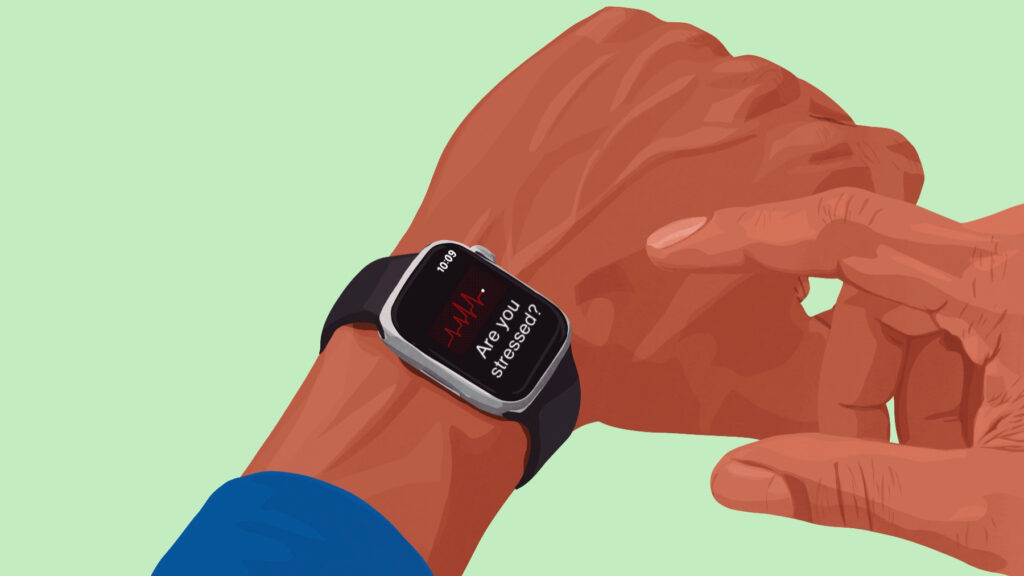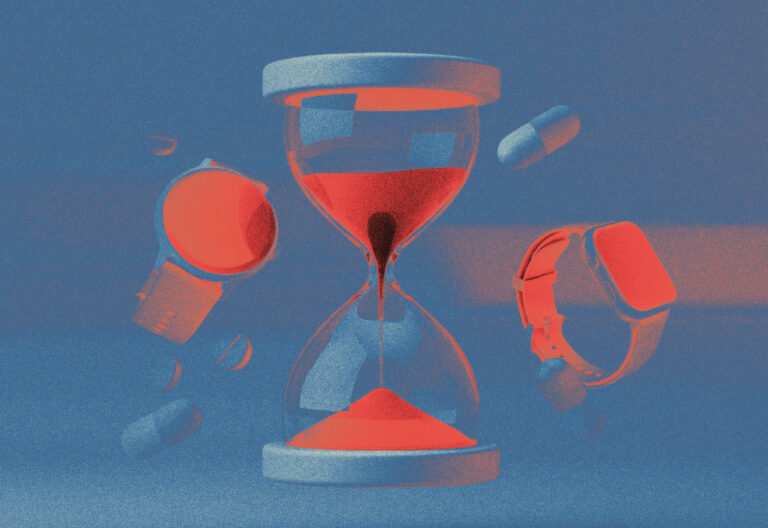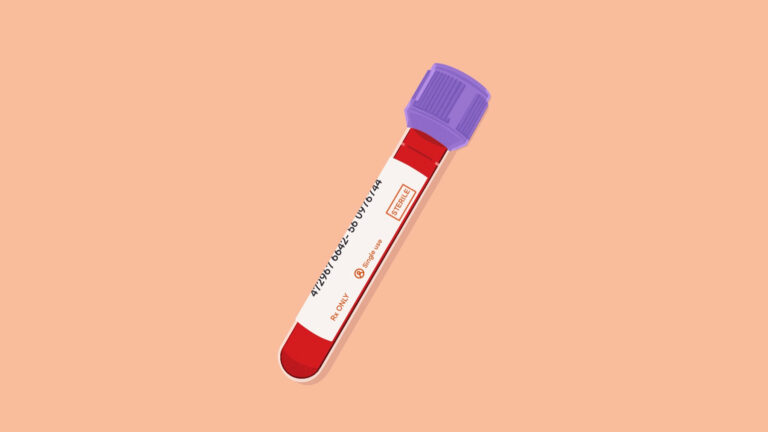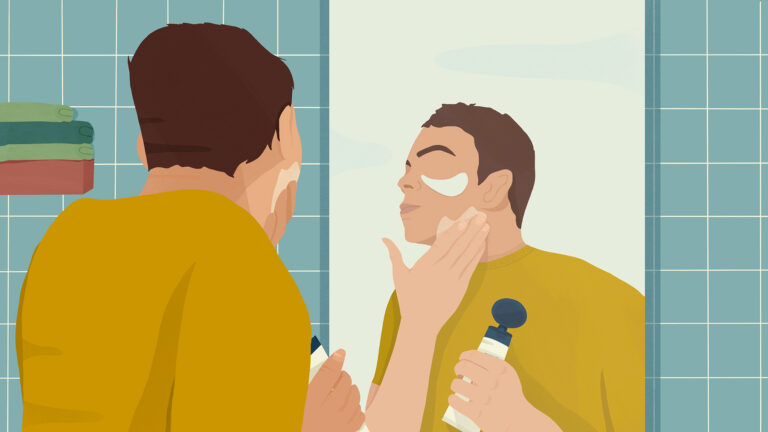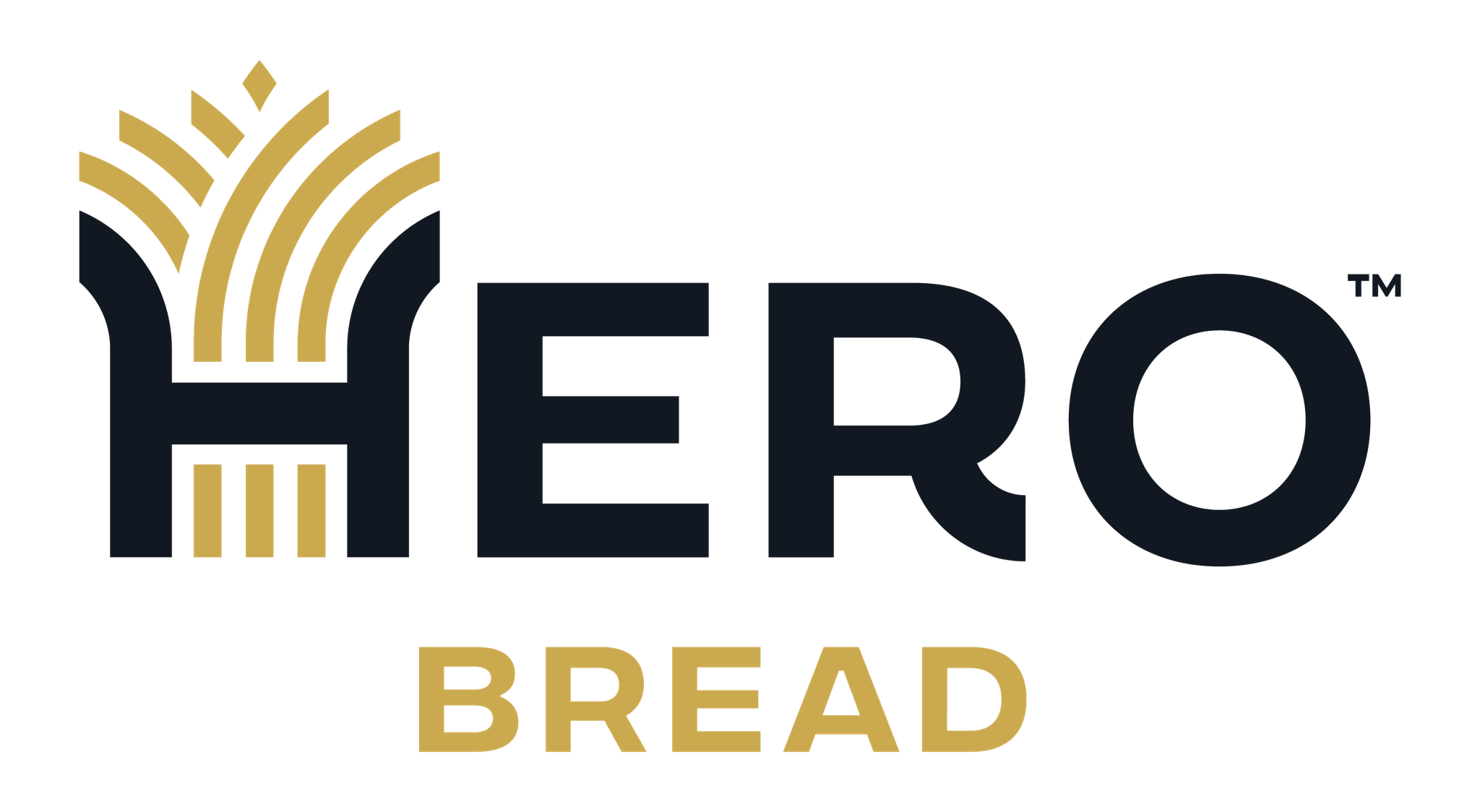
Baking up bread with benefits — like fiber, protein, and zero net carbs.
Chronic stress is weighing on us.
Tightly Wound
According to the APA, severe stress is becoming the norm.
- 24% of Americans rate their stress 8 out of 10 or worse, up 19% from 2019.
- 47% wish they had more support, and 61% feel pressured to tough it out.
- 33% feel completely stressed out no matter what they do to manage.
Worse, people are stuck, with a third enduring so much daily stress they’re unable to imagine the future.
The number-one stressor? Health.
Body on the mind. Stress is as much physical as it is mental, and constantly ruminating amplifies its effects.
Prolonged stress leads to chronic illness, including hypertension, obesity, and metabolic syndrome. But psychological stress is also linked to premature aging, rheumatoid arthritis, IBS, and infertility.
Millennials, in particular, are feeling the effects: Among 35–44-year-olds, 58% reported a chronic health condition and 45% were diagnosed with a mental health disorder, jumping 10% and 14%, respectively, from 2019.
Glass half full. Struggling to cope, ~25% of Americans increased alcohol consumption to combat stress, and 55% depend on booze, weed, or pills to sleep.
Others simply deny it affects them, with 81% of respondents insisting they’re in “very good” health despite having a diagnosed condition.
But, ignoring the symptoms—and dismissing therapy—only compounds the underlying problem, pushing people toward a breaking point.
Modern Self-Medicating
Intervening early, wearables want to identify and alleviate stress in real time.
Initially, device makers added cortisol sensors to quantify stress. But, simply telling people they’re unwell isn’t all that useful. Pairing new tech with proven protocols, brands are now tracking, treating, and even diagnosing root causes of stress.
Internal intel. Oura recently upgraded its smart ring to combat stress — using health metrics and an AI-powered journal to detect spikes, identify triggers, and suggest interventions, including mindfulness prompts from Headspace.
Now, stress management is becoming table stakes in the wearable wars.
- Apple’s Mindfulness and AI journaling apps address emotional state of mind.
- WHOOP pairs stress monitoring and breathwork developed by Dr. Andrew Huberman.
- Apollo Neuro and NOWATCH improve sleep and stress resilience, with the former leveraging Oura data to deliver targeted vibration therapy.
Offline, more are realizing the power of exercise and social fitness for stress-relief, with 65% of people reporting post-workout boosts in mental well-being. And others are cold plunging to reduce anxiety, stress, and anger.
Feeling It
Stress is natural, and attempting to eliminate discomfort could do more harm than good. In fact, APA researchers say learning to embrace and recover from stress may be more beneficial than avoiding it altogether:
“We do need some stress in order to develop as humans to our full capacity, to learn how to handle challenges.”
Takeaway: Stress has no cure, and from exercise to therapy, what eases the burden is different for everyone. But obsessing over wearable data is counterproductive — and outsourcing our feelings to an app will only make us more disconnected. In reality, there’s no algorithm for resilience, only life lessons.
🎙 On the Podcast
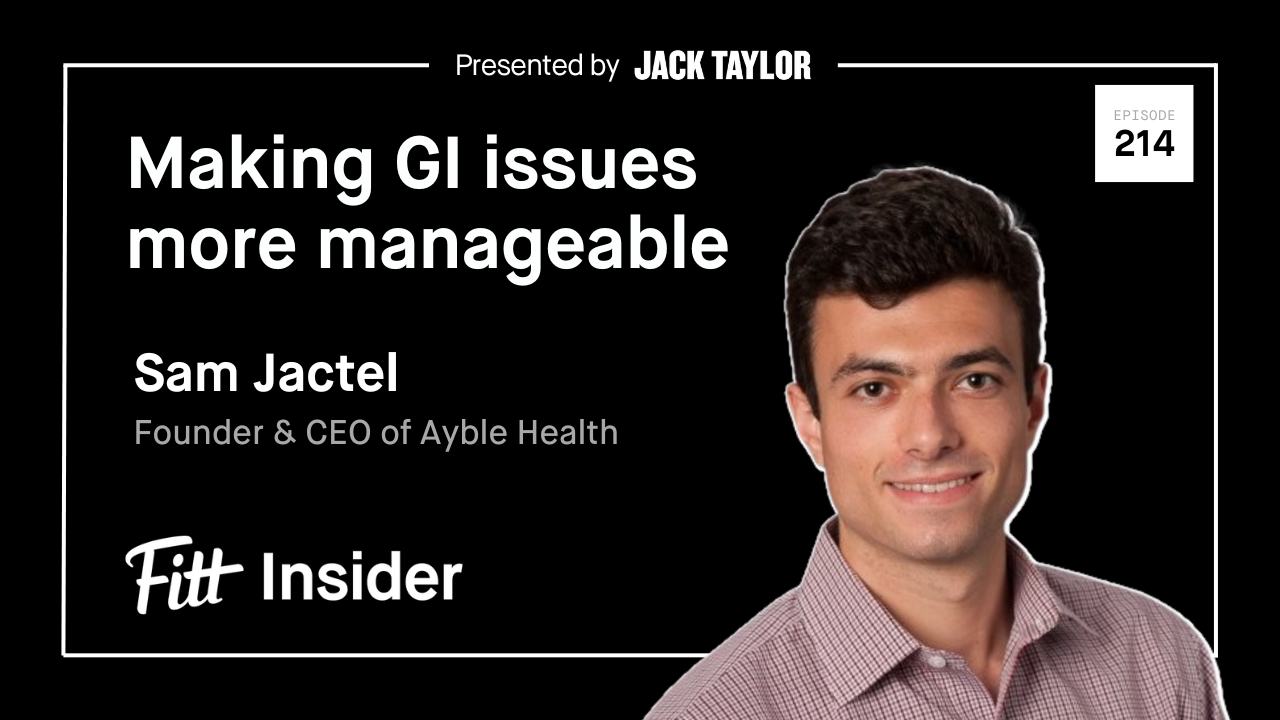
Ayble founder and CEO Sam Jactel discusses personalized gut health.
Fueled by his own battle with inflammatory bowel disease, Sam set out to transform how we treat gut disorders. In 2020, he launched Ayble Health — a digital gut care platform combining AI-powered health plans with dedicated human coaches.
We also cover: Ayble’s origin story, democratizing access to effective health tools, and partnering with Mayo Clinic.
Listen to today’s episode here.
⚖️ Tonal sues over “digital strength training” patents
Smart strength brand Tonal sued Chinese rival Speediance, challenging both its product and marketing.
- Tonal’s suit alleges infringement of six patents relating to construction and function.
- It requests monetary compensation or royalty payments for lost sales.
- It seeks to block any further production of Speediance’s Gym Monster product.
Beyond the machine, Tonal is also pursuing false advertising charges, highlighting Speediance’s use of the phrase “Tonal killer” and claiming it used a fake Amazon review service.
Piling on. Tonal’s broad, 2017-filed patent for “digital strength training” was bound to spur legal battles, especially as contenders like Speede, FORME, OxeFit, and others emerged.
But patent infringement suits in the connected fitness world are nothing new.
- Last fall, Hydrow settled its case against iFIT’s NordicTrack rowers, forcing iFIT to alter its design.
- Around the same time, Peloton settled all open litigation with rival Echelon.
- After coming to terms on their own dispute, iFIT and Peloton lost a patent case to DISH relating to streaming technology this February, which the latter settled for $75M.
Punchline: A highly litigious space, most cases are eventually resolved—in a settlement, dismissal, or legal dead-end—often resulting in minimal gain. As Tonal and other smart equipment makers confront fading sales and tight outside funding, taking on a dupe might cost more than it’s worth.
Presented by Hero Bread
🍞 Slices of Heaven
Guilt-free French toast… it does exist!
Step one: get yourself some Hero Bread.
Makers of fluffy, flavorful bread, two slices pack in 22g of fiber and 10g of protein, with 0g net carbs and 0g sugar. Use it in your favorite healthier French toast recipe, and… *chef’s kiss*!
Beyond breakfast, Hero’s bread, buns, and tortillas will transform any recipe. Baking in added benefits, it also supports gut health and balanced blood sugar.
Get the goods! Score your Hero Bread at hero.co and use code FITT10 at checkout for 10% off your first order.
💪 Experts explore yoga’s impact on longevity, brain health
Growing research suggests yoga can help preserve mental and physical health.
- Analyzing 33 studies, Harvard-affiliated researchers confirmed yoga improves walking and leg strength in seniors — effectively protecting against age-related frailty.
- A study from Mass General revealed regular hot yoga cut depression in half.
- An Oregon-based study showed eight weeks of combined mindfulness meditation and yoga reduced chronic pain in 89% of participants.
Excited by positive outcomes, researchers plan to conduct more studies to grasp the mechanisms behind the mind-body connection.
Zen as medicine. Despite chronic pain affecting 100M people and costing the US $635B annually, effective treatments are elusive. Similarly, America’s mental health problem has proven difficult to unwind — fueling a concurrent opioid crisis.
A new tool to consider, mindful exercise could preserve brain health, stave off physical disability, and even help manage neurodegenerative disease. As more people take up low-impact exercise, like Pilates or stretching, yoga’s multifaceted benefits could extend to new modalities.
Takeaway: Far from a panacea, meditative movement holds promise as a risk-free approach to treating a myriad of health problems. And, while we may not know exactly how, there’s growing evidence that it’s potentially as effective as pharmaceutical interventions.
📰 News & Notes
- Xponential Fitness reaches 3K global studios.
- EVOLVE MVMT launches walking optimization wearable.
- LA Fitness parent expands boutique-in-a-box concept to NYC.
- GYMGUYZ takes personal training beyond home, targets B2B.
- Fitt Jobs: Find your next career opportunity in health & fitness.
- WHOOP refines its muscular strain scores for yoga and Pilates.
- Exec Q&A: Jason Dunlop of Orangetheory Fitness on international expansion.
- Fitt Consulting Group helps ambitious teams define the future of fitness and wellness. Learn more and get in touch here.
💰 Money Moves
- UK-based boutique studio operator Digme Fitness acquired four Orangetheory Fitness studios in London and will drive the brand’s UK expansion as a master franchisee.
- Season Health, a food as medicine company, acquired the clinical assets of telenutrition platform Wellory.
- Berlin-based nature immersion company Raus raised €8.5M ($9.3M) in a funding round to scale its off-grid cabins across Europe.
- SaaS company RepeatMD secured $50M in a Series A round to scale its mobile ecommerce platform for aesthetics and wellness operators.
- Movement Climbing, Yoga, and Fitness acquired The Cliffs, operator of five climbing gyms in the NYC and Philadelphia areas.
- Ghee maker 4th & Heart landed $10M in a round led by Cambridge Companies SPG.
- Mental health-focused startup Alto Neuroscience closed a $45M Series C round to advance clinical trials for its precision psychiatry platform.
- Biomel, a plant-based gut health CPG brand, added £5.5M ($6.9M) from IRIS Ventures.
- Functional beverage brand Jibby raised $463K in a pre-seed round.
- Norwest Equity Partners acquired United Sports Brands, operator of Shock Doctor, Nathan, and other sports performance brands.
Today’s newsletter was brought to you by Anthony Vennare, Joe Vennare, Ryan Deer, and Jasmina Breen.
